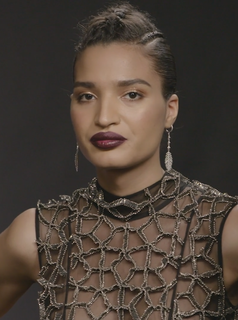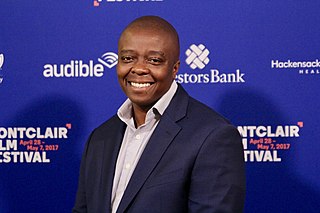A Quote by Jamaica Kincaid
What frustrates me is to see African-Americans behave as though what European-Americans say is worthwhile. It simply isn't. It's just some silly people who can make laws and have the power to enforce them. I'm often amazed at the conversations black people have about themselves. They ought to be having these conversations about white people. It's white people who are flawed and at fault.
Related Quotes
I've found in conversations with people - and not just white people either, because I realize there are some Black people that voted for Trump - usually when I get in these conversations with people who voted for Trump, there was always some level of his bigotry that appealed to them. Banning Muslims, building a wall, it was always something.
If you're looking at the people who head the institutions, there are very few African Americans or people of colour. I'm talking about the major theatres that position themselves as serving all audiences. What you find is, by and large, people who are shaping what we see, and the people who are the tastemakers are white.
I've never seen a sincere white man, not when it comes to helping black people. Usually things like this are done by white people to benefit themselves. The white man's primary interest is not to elevate the thinking of black people, or to waken black people, or white people either. The white man is interested in the black man only to the extent that the black man is of use to him. The white man's interest is to make money, to exploit.
I think that we need to have an honest conversation in this country. This idea that somehow we're beyond sexism, beyond racism is just wrong. And this is where having an honest conversation with white men about their issues and their concerns, and having honest conversations about the experiences that African-Americans are still having, despite who's the president of the United States, in the criminal justice system that we see in sentencing, we see in policing and a lot of these issues.
The strange thing about my life is that I came to America at about the time when racial attitudes were changing. This was a big help to me. Also, the people who were most cruel to me when I first came to America were black Americans. They made absolute fun of the way I talked, the way I dressed. I couldn't dance. The people who were most kind and loving to me were white people. So what can one make of that? Perhaps it was a coincidence that all the people who found me strange were black and all the people who didn't were white.
When NASCAR drivers blast one another with their cars out of anger it isn't symptomatic of what's wrong with white people. So please don't turn a silly NBA fight into a town hall meeting about what's wrong with African Americans - even though, unfortunately, something like this somehow winds up reflecting poorly on the entire black community.
I think the play offers (white Americans) a different way to look at black Americans For instance, in 'Fences' they see a garbageman, a person they don't really look at, although they see a garbageman every day. By looking at Troy's life, white people find out that the content of this black garbageman's life is affected by the same things- love, honor, beauty, betrayal, duty. Recognizing that these things are as much part of his life as theirs can affect how they think about and deal with black people in their lives.
I am extremely conscious of my tribalism. And when you talk about tribalism, you talk about living in a black and white world. I mean, Native American tribalism sovereignty, even the political fight for sovereignty and cultural sovereignty is a very us versus them. And I think a lot of people in this country, especially European Americans and those descended from Europeans don't see themselves as tribal.
You take for example the environmental movement is a big deal in my district. You know, you might say, yeah, more African Americans are suffering from asthma and air pollution-related illnesses, but there`s a lot of white folks, a lot of white kids with inhalers. So, you just got to talk to the reality of everyone, not exclude anyone. And make sure that people know that you care about them too. I think if you do that, we can get there.





































